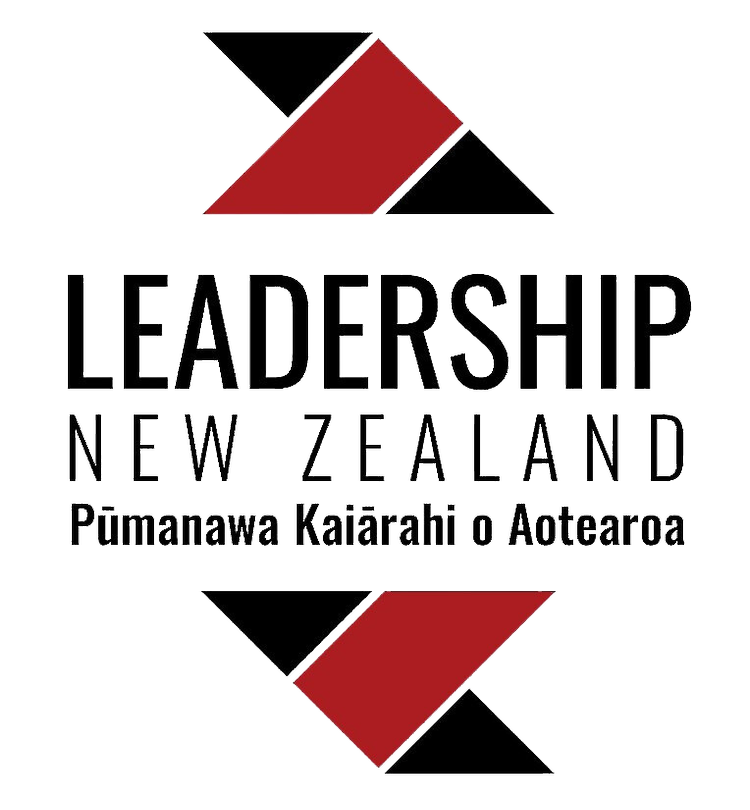by Phil Brewster, International Programme Development Manager, NZ Red Cross
Before this weekend, in my two years here, I have had little direct engagement with Maori people or issues outside some historical reading, a few waiata my son brought home from daycare, a powhiri that moved me but I didn’t understand and the sprinklings of Maori language that flavour Kiwi English. My adjustment to NZ was one of adaptation to Pakeha culture. Well, some of that changed at Leadership NZ Session 2 ‘Our Roots: Our History’. What an honour, a privilege, a game-changing weekend that gave me personal insights into the richness and complexity of the cultural identity, history and challenging reality for the first peoples of this land. A different worldview with powerful values, symbols and traditions.
We boarded our waka near Auckland Airport and drove to Whangarei to the Manaia PHO. My first time north of Auckland and my first hongi. Chris Farrelly, the CEO spoke to us. What humility in a man so deep. Who really argues with Mother Teresa? Who really spends 14 years in a Korean slum? Someone who has dedicated their life in the service of the disadvantaged, the road less travelled. This is exactly the kind of person we need to lead diverse communities to overcome complex challenges together. I drank in every word of his quiet, understated wisdom. He stressed the importance of Pakeha and Maori being able to walk side by side in non-judgemental partnership. A theme that would re-emerge throughout the weekend and one that resonates deeply from my humanitarian work overseas. A quote that inspired me was the importance of a joint vision that unites and respects people “If you want to build a ship, don’t herd people together to collect wood and don’t assign them tasks and work, but rather teach people to long for the immensity of the sea.” I also loved the story of the swallows. Beware the young tireless leader who flies too hard and does not rest.
Between Whangarei and Moerewa, I fell asleep and woke up in a different place. Small towns with busy facades but empty interiors, dilapidated houses and bare streets. The landscape was greener and the rain comfortably warm. At the He Iwi Kotahi Tatou Trust after a raw and honest sharing of our reflections on Maori worldview, we heard the perspectives of three generations of Maori leaders. We heard allegories and stories from the elder kaumatua, Walter Whiu. We listened to Ngahau’s practical openness and desire for genuine dialogue. What struck me was Albert’s sophisticated, cultural navigation who wanted to show us the uniqueness of his Maori identity, the magic of his elders, the relevance of their stories, how precious his kauatua was and how lucky we were to hear him speak. A critical leadership skill for New Zealand must be the capacity to effectively navigate through cultures, to slide between the membranes of identity with empathy and Albert showed us an abundance of this.
Our final destination was Kohewhata Marae in Kaikohe where we would stay 3 days. We slept in the wharenui surrounded by ancestors and tried to walk in the shoes of a different worldview and history. We were enveloped by another way of looking at the world. Tuki’s map not Cook’s, circularity over linear, song to complement speech, land and people, tribe and nation, ancestors. An incredible thing started to happen to our group in this environment that I can only really liken to love – sounds cultish but I really felt over this weekend that our group started to bond and care more about each other. Our egos and insecurities were stripped bare through the raw honesty of the My Life sessions. The authenticity, growing confidence and resulting trust helped to further gel the group. Those beautiful, pregnant acknowledgements of the bravery of exposing your true self united us. We cooked, laughed, cried, slept and some snored, all together. Did the Maori worldview and the Marae help us do that? I believe so.
A recurring theme in many of the My Lives this weekend was the strength people had needed to find the space for forgiveness. It felt significant to hear of these struggles in a Marae among the descendants of a great injustice.
We visited Waitangi and saw the new museum. Too little time for such a solemn and symbolic place. We spoke with Justice Joe Williams and Professor Aroha Harris and by then everything they said was like nectar. So precious. I wanted to hear more of the contemporary debates on identity, settlement, globalisation and free trade, environmental change and multiculturalism. It felt like everything this weekend had been a lead up to enabling us to engage with these issues.
So, this week back in Wellington, it has been Tuku Mihi in the shower, Te Aroha while cooking dinner and it feels great to put my jandals on. This reflection would not be complete without recognising Damon and Kelly’s leadership and Maraea’s powerful karanga. Nga mihi.

